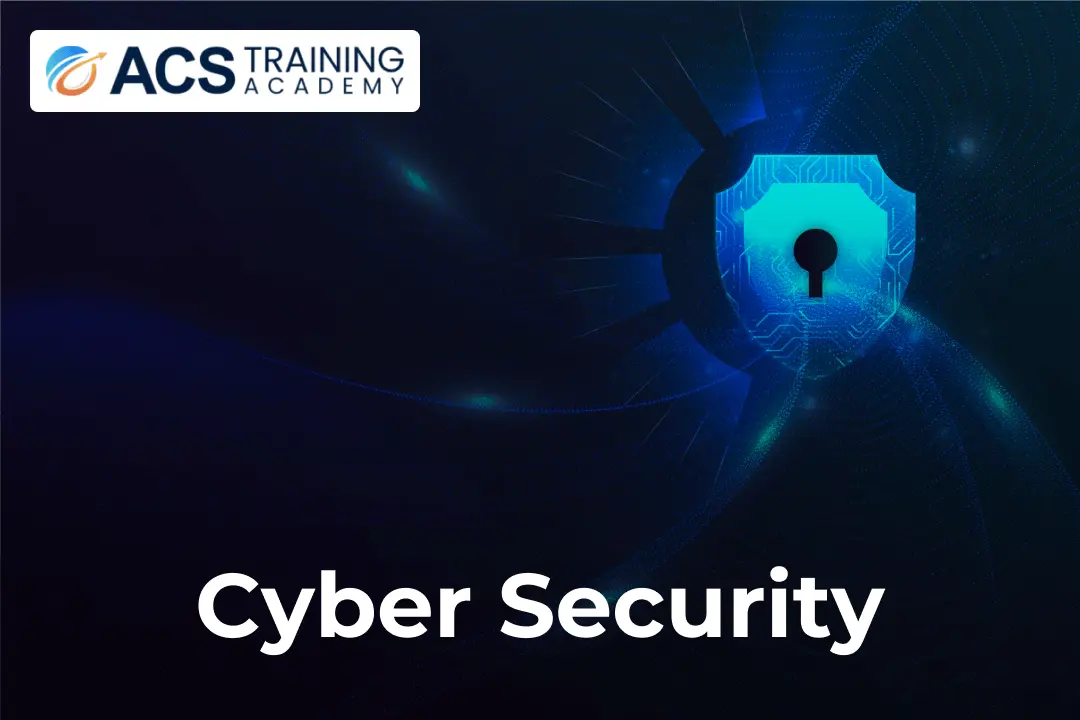
Cyber Security Certification Course
About This Course
ACS Training Academy cyber security certification courses are suitable for students of all levels. Our cybersecurity certificates are focused on practical applications and are designed to provide you with the skills you require to protect key infrastructures and manage enterprise security challenges.
About The Cyber Security Certification Course
In today’s increasingly digital world, the importance of cyber security cannot be overstated. The rapid evolution of technology brings new opportunities, as well as new challenges in the form of cyber threats. As individuals, organizations, and governments increasingly rely on digital platforms, securing sensitive information and ensuring online safety has become critical. This is where comprehensive cyber security training online comes in, providing individuals with the information and abilities required to navigate this complicated world.
Benefits Of Doing Cyber Security Training Course.
Considering the growing importance of digital technology in our daily lives, there are many advantages to participating in cybersecurity. Here are some significant advantages of choosing a career or degree in cyber security.
- High demand for professionals.
- Salaries are lucrative.
- Various Career Paths.
- Ethical hacking and problem-solving.
- Constant learning and challenge.
- Global relevance.
- Continuous growth. Course curriculum.
- Contributing to digital safety.
Who Can Apply for Cyber Security Certification Courses?
- Beginners with an interest in cybersecurity.
- IT professionals.
- Security enthusiasts.
- Professionals seeking advancement.
- Graduates and students.
- Entrepreneurs and Business Owners.
Job Role:
1. Security Analyst.
Security analysts monitor an organization’s network and systems for security breaches, analyze incidents, and put security measures in place to avoid future assaults. They investigate vulnerabilities and offer ways to improve security.
2. Penetration Tester (Ethical Hacker).
Penetration testers simulate cyberattacks on systems, networks, and apps to find flaws that malicious hackers could exploit. They provide detailed information on flaws and recommend solutions to mitigate them.
3. Security Engineer.
Security engineers develop, design, and manage security solutions that protect an organization’s IT infrastructure. They operate with firewalls, encryption systems, intrusion detection and prevention systems, and other security tools.
4. Security Consultant.
Security consultants help organizations examine their security posture, identify holes, and design solutions to improve cybersecurity. They can work for consulting firms or individually.
5. Security Architect.
Security architects create and plan the overall security structure for an organization’s IT systems. They develop security policies, select appropriate technologies, and verify that security measures are consistent with corporate objectives.
FAQ:-
Is Cyber Security Training a Good Career?
Cybersecurity training is an extremely promising career option in today’s digital world. As technology advances, there is an increasing demand for trained people capable of protecting sensitive information and digital assets from cyber threats. A cyber security education can equip you with the knowledge and skills needed to succeed in this industry.
Is cyber security need coding?
Coding skills are becoming valuable in the field of cyber security. While coding skills are not required in every facet of cyber security, they are an important part of many of them. Those seeking a cyber security course can substantially benefit from learning coding languages like Python, Java, or C++, as these skills allow experts to comprehend and evaluate vulnerabilities, construct safe software, and create unique threat detection and prevention systems.
What language is used in cybersecurity?
Python, C/C++, Java, and Ruby are among the most often used languages in this industry. Individuals taking a cyber security education can benefit from a basic understanding of coding ideas, which allows them to assess and design security solutions, identify vulnerabilities, and automate specific security operations. Finally, the language used may be determined by the precise field of cybersecurity in which one desires to specialize, making it an important component of a comprehensive cybersecurity course.



